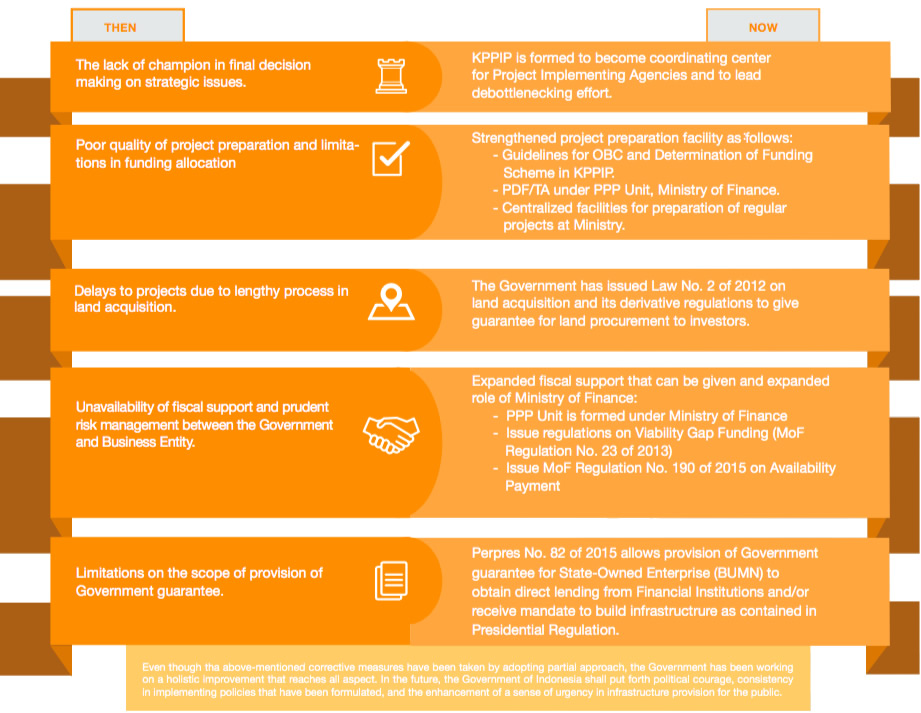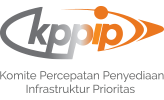Indonesian economic growth at 4.73 percent as of September 2015 did not live up to expectations particularly because Indonesia needs to achieve a growth rate of 7 percent at a minimum to be considered as a developed country in 2025. In the spirit of acceleration, the Government of Indonesia has made every endeavor to boost investment in various sectors related to infrastructure. Improvements in regulatory, fiscal, and institutional aspects have been made to spur the achievement of priority projects milestones.
Provision of infrastructure in Indonesia is sluggish because of obstacles encountered at various project stages from the preparation to the execution. As a whole, poor coordination between stakeholders often delays the decision-making process. At the preparation stage, problems usually arise as a result of low quality in project preparation and constraints on allocation of funds. Similarly, projects are often hindered by problems in land acquisition resulting in delays in achieving nancial close of PPP projects. Furthermore, from a financial perspective, unavailability of scal support caused by inconsistency or disagreement on equal risk sharing mechanism between the Government and Business Entity is another constraint that often emerges. In addition to nancial support, limitations on guarantee provided by the Government for infrastructure projects also reduce interest in investment in Indonesia.
To overcome these obstacles, the Government has taken corrective measures in regulatory, fiscal, and institutional aspects. In 2014 the Government formed the Committee for Acceleration of Priority Infrastructure Delivery (KPPIP) charged with leading coordination to accelerate priority infrastructure and promoting improvement in quality of project preparation by adopting OBC Guidelines. These corrective measures are further supported by the increasing capacity of Ministry of National Development Planning (PPN)/National Development Agency (Bappenas) in providing facilities for project preparation, and then continued by the PPP Unit at the Ministry of Finance that provides Project Development Facility (PDF) and Transaction Advisory for PPP projects to increase investors’ interests in funding the projects.
Aside from the above-mentioned matters, in order to surmount obstacles to land procurement, Law No. 2 of 2012 has also been issued for the purpose of accelerating land acquisition process for public interest. This particular regulation is equipped with derivative regulations that have been revised as needed.
Considering that Government support is pivotal to attract investment of Business Entity, the Government has issued regulations to provide Viability Gap Funding (VGF) and availabilty payment. To bolster this Government support, guarantee provided by the Government has been expanded to allow State Owned Enterprises (SOE), that are assigned with instructural development, to receive such a guarantee.

Increasing support for the development of Infrastructure in Indonesia




